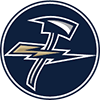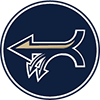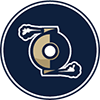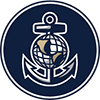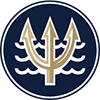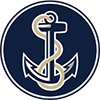Sea-Term Assistant Training Officer (Deck)
The Assistant Training Officer acts as classroom and laboratory instructor teaching classes on a variety of subjects related to the USCG 3rd Mate License/OICNW including, but not limited to, celestial navigation, seamanship, cargo operations, voyage planning, watch-keeping/bridge resource management, and Safety Management System utilization. This position reports to the Senior Deck Training Officer.
DUTIES
- Develops and teaches classroom and lab classes as directed by the Senior TrainingOfficer.
- Supervises and trains students of varying experience levels in practical operation of all bridge and deck machinery/equipment, tools, and safety equipment.
- May be asked to stand a training watch on the ship's training bridge
- Frequently acts as a safety observer during any evolution involving groups of students; working knowledge of/experience with Safety Management Systems is recommended.
- Works with the Senior Deck Training Officer to develop and present material to Cadets.
- Responsible for objectively evaluating student performance as well as work and training processes.
DESIRED SKILLS
- Thorough knowledge and familiarity with all shipboard systems and equipment.
- Experience as Deck Watch Officer/OICNW, or related experience such a USN / USCG Deck Watch Officer.
- Experience of, or willingness to learn, teaching and objective evaluation of Cadets.
- Excellent physical health and evidence of a positive mental attitude.
- Desire to inspire, motivate, and mentor aspiring Merchant Officers in their professional development.
- Ability to work with people in a closed, intense environment while providing effective leadership.
- Ability to be flexible to changes of schedule and teaching content in a dynamic training environment.
- Ability to teach watch-keeping/bridge resource management, cargo handling, line handling and deck equipment usage, and proper use of Safety Management Systems.
MINIMUM REQUIREMENTS
- Merchant Mariner Credential (MMC)
- STCW Endorsement for RFPNW, OICNW, PSC
- Valid USCG Medical Certificate - STCW Expiry (2 year)
- Valid US Passport
- Transportation Worker Identification Card (TWIC)
- Candidate must pass a pre-employment drug screening and be deemed fit for duty at sea.
- Computer proficiency is required.
PREFERRED QUALIFICATIONS
- USCG Second Mate’s – self-propelled vessels of unlimited tonnage – Oceans or similar qualification
PHYSICAL REQUIREMENTS
- While performing the duties of this job, this employee may:
- Be exposed to extremes in weather onboard ship, including rain, sleet, snow, rough seas;
- Regularly sit, walk through narrow passages, climb ladders;
- Use hands to manipulate objects, tools or controls;
- Reach with arms and hands;
- Lift and move up to 40 pounds;
- Work in areas of high noise levels.
Policy Notice
All personnel are subject to the health, safety and environmental policies of Maine Maritime Academy and the Safety Management System aboard STATE OF MAINE
Please visit jobs.mma.edu for instructions on how to apply.
